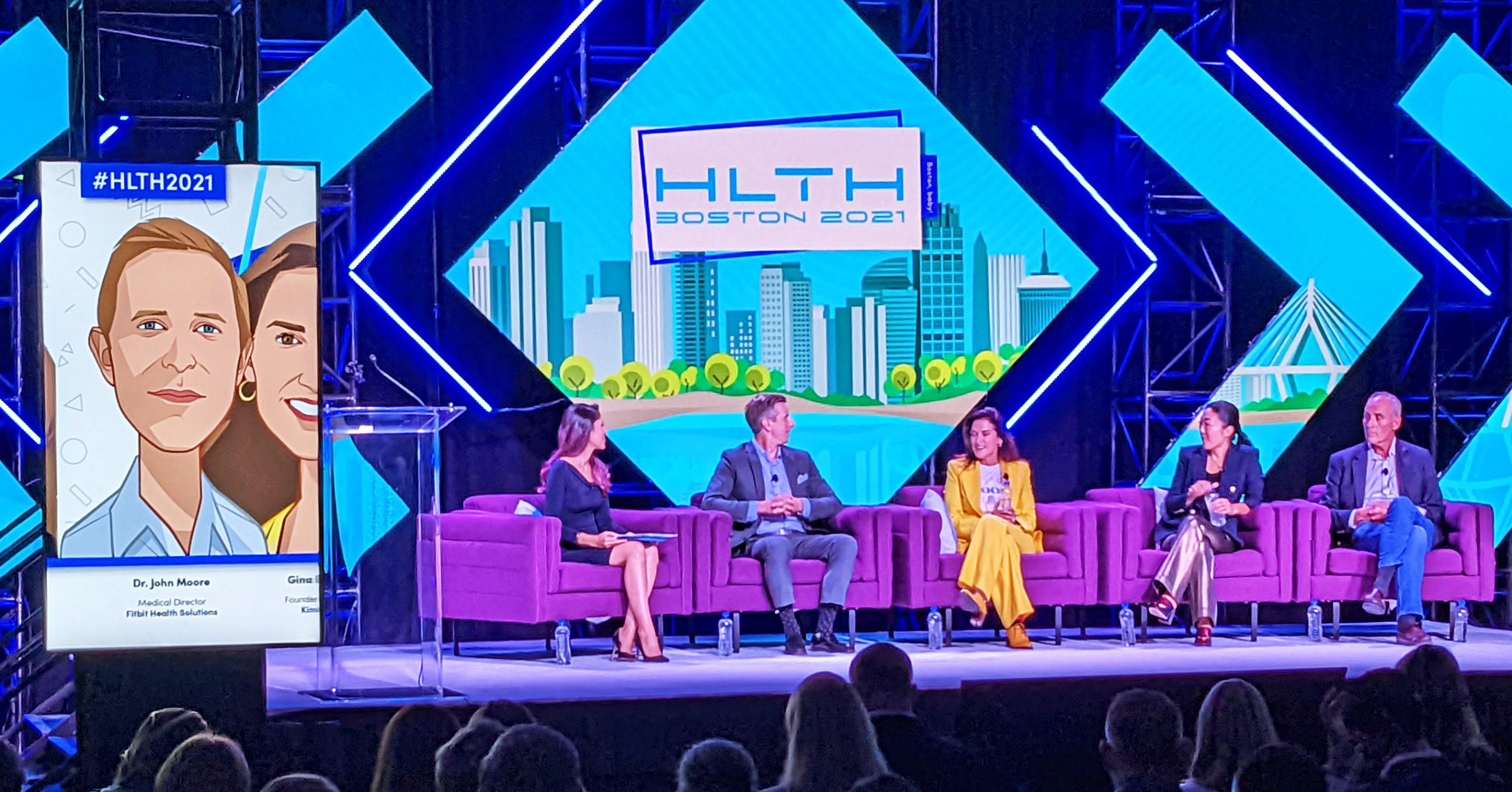HLTH 2021 Recap: 5 Key Takeaways from the Largest Conference for Health Innovation
The Fitbit team was in Boston recently for HLTH 2021, the preeminent event for the health industry. The multi-day event carried forward the theme, “Dear Future, We’re Coming for You,” and included sessions led by dozens of thought leaders across the health landscape who gathered to solve healthcare’s most pressing problems and realize the opportunities to create health’s future.
If you weren’t able to attend, check out our recap of five key takeaways from HLTH 2021:
1. Expect big changes in the consumer healthcare experience.
A key theme in the 100+ sessions at the event is that the time is now for the consumer healthcare experience to change. And change requires partnerships spanning providers, payers, technology, and social services alike. At the heart of that experience is how all of these segments can best support individuals in changing their behaviors. That means equipping all members of the care team, including individuals themselves, with actionable information.
At Google, we are embedding health into all our work across the company in an effort to reach people with health information at all points of their care journey. As Dr. Karen DeSalvo, MD, Chief Health Officer at Google, explained during her fireside chat at HLTH, we do this through different products and services, including raising authoritative health information on Search and Youtube to personalized insights via tools like Fitbit and sleep sensing features on Google Nest Hub.
2. Health is a team sport.
The relationship between the health and tech industries has been solid for years. While both sides are ready to take things to the next level, challenges remain in tying together benefits. In the session, The Happy Marriage of Health and Tech, executives from Uber Health, Highmark Health, Verily Life Sciences, and Peter J. Solomon Company agreed that “one size fits all” no longer works in healthcare. Consumers now have choices, and their influence is growing and changing how providers deliver benefits.
Providers need to meet the consumers where they are and spend less time solving for logistics. They need to help those at the care coordination level by adding a coaching, concierge, and navigation layer, utilizing asynchronous coaching models and provider interactions.
Providers also need to refocus on behavioral health, and the panel discussed various examples, including Verily OneFifteen, a non-profit recovery ecosystem for addiction and rehabilitation. The OneFifteen organization believes that successful recovery is achieved through personalized, evidence-based care and support from care providers and the community.
3. Millennials want a digital health experience.
People born between 1981-1996 have surged to make up more than 50 percent of the US workforce, leading to a much younger population falling under employer-sponsored health plans. The panel of speakers for The Next Generation of Health Consumers, which included John Moore, Medical Director at Fitbit, emphasized that millennials want healthcare differently than older generations.
This generation seeks more accessible, convenient care options that work around their schedule. They want immediate, 24/7 care and price transparency. And they prefer not to have recurring visits for chronic care management but rather seek care when needed.
Millennials prioritize convenience and use of technology, with options such as virtual clinics at home. This generation has created an opportunity for wearables to be there daily, no matter what healthcare services an individual is receiving.
They don’t want a paternalistic encounter, and millennials may never have Primary Care Physicians (PCPs) in the manner that older generations have. This change creates a need for more payer-provider relationships and a move away from Fee For Service (FFS) models.
4. Chronic condition management is evolving.
The need for human-centric healthcare for chronic conditions is vital, as no one wants to be viewed or treated as their disease. The panelists in Keeping Up with Chronic Condition Management discussed how providers can become part of an individual’s life, so they can access healthcare when they need it. The starting point is to build an environment of trust, explaining how and why things matter.
The biggest asset to chronic condition management is data, as people are leaning more toward an on-demand, digital experience. The challenge is for providers to remove the noise from the data and use it to help people change behaviors. The panelists discussed how the key to chronic condition management is helping consumers understand that prevention is better than a cure, and wellness is the most important part of healthcare long term.
5. Retailers are pivoting to be the front door of healthcare.
The retail industry is responding to the digitally engaged consumer. In the session, Big Retailers, Big Ambitions, the speakers from CVS Health and Walmart Health described how the big brand pharmacies and retail health providers are investing in and modernizing consumer health experiences. CVS Health is now the largest health e-commerce company in the country and will continue to invest in the front-end experience.
With the goal to meet patients where they are, CVS has programs such as COVID-19 testing and follow-up visits with its Minute Clinic. It is moving into virtual care models, with 10K virtual locations across the US. CVS is also investing in home care, with services and programs ranging from kidney care, home dialysis, and readmissions prevention.
This year’s HLTH presenters and participants agree that COVID-19 did not only change the way business is transacted in the healthcare industry, it also helped to accelerate both innovation and technology adoption which created successful partnerships spanning providers, payers, technology, and social services. These partnerships are now, more than ever, ready to team up to support individuals in changing their behaviors by delivering innovative health and wellbeing solutions to consumers – where, when, and how they want them. See you at HLTH 2022!



